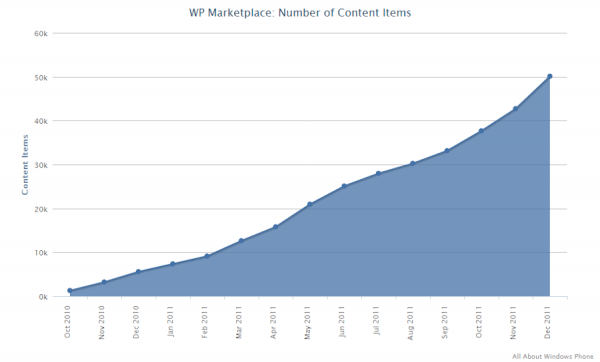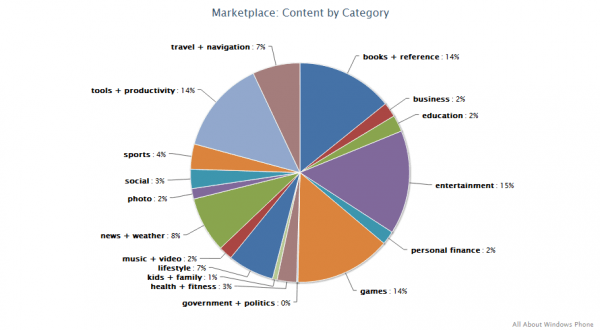Microsoft's Windows Phone Marketplace has now surpassed the 50,000 app milestone. While that number still pales compared to both Android and iOS app stores, the Redmond-based software giant has every right to be impressed given its taken just over 14 months since the mobile OS was launched to achieve this landmark.
Content is increasing at an average of 256 apps per day. "The 50,000 mark, which has been reached sooner than we estimated, is a key milestone, but more important is the accelerating growth of the Marketplace. It took just over a year to get to 40,000 apps, but just 40 days to add the next 10,000 apps. That bodes well for Windows Phone in 2012," said Rafe Blandford yesterday in a post on All About Windows Phone.

The graph gives an overall view of the growth of the Marketplace's app portfolio from October last year, when the OS was first made publicly available. The numbers were collected by All About Windows Phone's own tracking system and give validation to Microsoft's rapid growth claims.
Not all 50,000 apps are available to every market though, for various reasons including legal or language differences. Around 6,000 have also either been removed by the software giant or their publishers. "The current approximate figures are: US (42,655), UK (40,305), France (39,235), Spain (37,027), Italy (36,944), Germany (36,958), Australia (37,024), India (36,752) and Singapore (36,922)," according to the report.

The 'entertainment' category is by far the biggest with 15 percent of all entries. After that 'books and reference' is in joint second place with 'games' and 'tools and productivity' at 14 percent each. Those four make up 57 percent of the total content available.
In comparison, it took Android 19 months to reach the same milestone and Apple around 12 months. In terms of overall size, both Android and Apple have around ten times more applications. Of those available Marketplace apps, 58 percent are free, 29 percent are paid for applications and 14 percent were paid for after completing free trials.
The increase could well coincide with the first Nokia Windows-based phones launched on October 26th, which will have sparked more interest in the alternative mobile OS developed by Microsoft.